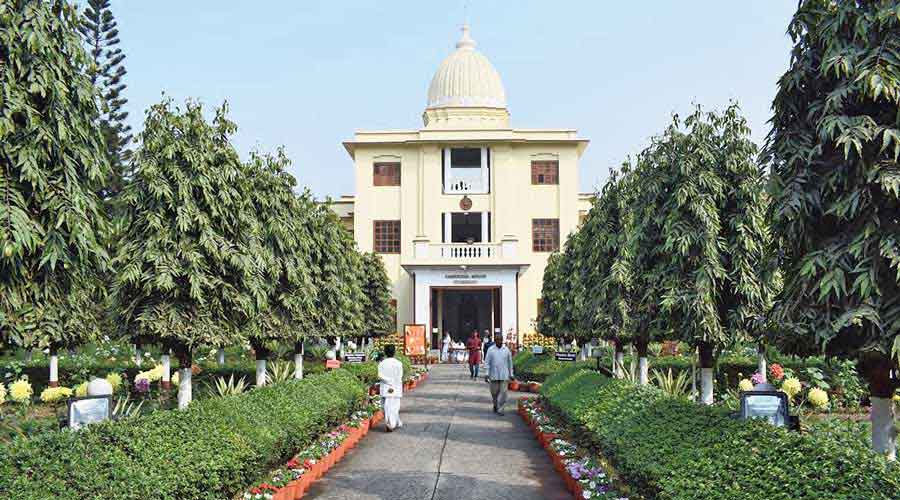Several residential colleges and institutes have decided to curtail the summer recess so that they can make up for the loss in studies following the pandemic-induced closure of the campus and delayed start of the academic session.
An official of the education department said colleges and universities that follow the semesterised choice based credit based (CBCS) systems from 2018, would get the summer break between the dissolution of classes in the second week of May and internal and end-semester examinations in June.
Ramakrishna Mission Vidyamandira, Belur, plans to give study leave for a week before the start of the in-person end-semester examination in June.
Vidyamandira, in the pre-pandemic times, used to have a month-long summer recess in June.
Ramakrishna Mission Residential College, Narendrapur, too has decided to cut down its month-long summer recess.
Here too the students will have a week-long study leave before the in-person offline examinations are conducted over June and July.
NIT Durgapur has decided to reduce its two-month long summer break for the first-year students to a three-week recess because the session had started from mid-December following the Covid pandemic-induced delay.
Swami Ekachittananda, the principal of the Ramakrishna Mission Residential College, Narendrapur, said they had got a limited number of working days as the classes for the even semester started from the end of March.
“Usually, we used to have the summer recess in May. But this time, since the offline classes resumed from February, we have limited working days. So, we won’t have any summer recess. We will hold classes without any break till the end-semester exams are held,” Swami Ekachittananda told The Telegraph.
The state government allowed the resumption of offline classes from February as the campuses had to be closed from January following a fresh surge of Covid cases.
The end-semester examination for the outgoing undergraduate and postgraduate batch is likely to start from mid-June at the Narendrapur college.
The examination of the remaining years is likely to commence from the first or second week of July.
“If the summer recess is not skipped, we won’t be able to make up for the loss in study brought about by the pandemic and restore the normal academic session,” principal Swami Ekachittananda said.
The semesterised academic session, split in even and odd, usually starts from January and July respectively.
The classes for the even semester started from the second week of March, said Swami Mahaprajnananda, the principal of the Ramakrishna Mission Vidyamandira, Belur.
“Considering that we have limited working days, we would hold classes without any break till the first week of June. Then after a week-long study break, we will hold an end-semester examination throughout June. Classes of the new semester will start from July,” said Swami Mahaprajnananda.
At NIT Durgapur, the first-year students will come to the campus on May 6 and May 7 to attend offline classes from May 9.
“If we don’t dock the usual summer break for these students, we won’t be able to complete the two semesters. They will have a break from the second week to the fourth week of July,” said Nirmal Hui, the dean of academics.
In the pre-pandemic time, the summer break would be from May to the first week of July.
The first-year students will write the end-semester examination from July 4 to 9.
Sources in Calcutta University said, after the classes get dissolved in mid-May, the undergraduate students usually come to write the end-semester examination in June.
“Since the in-person classes have resumed from early February after a gap of two years following the pandemic, the old order is likely to be followed again,” said a CU official.
